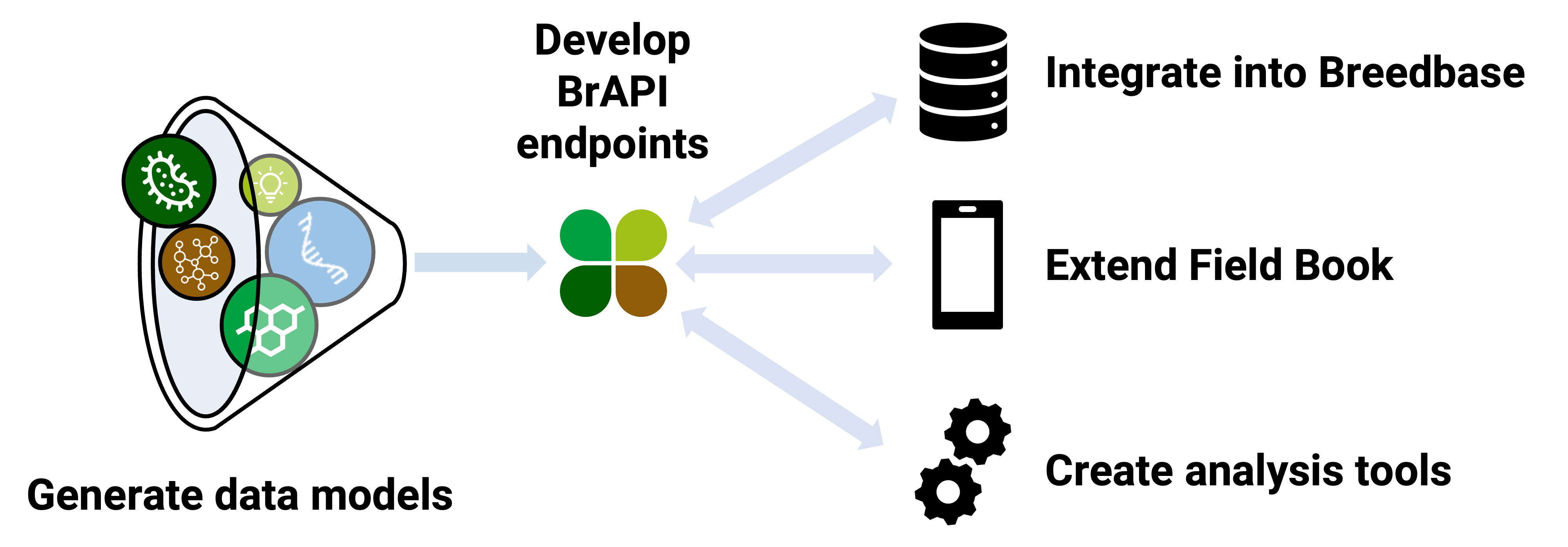New NIFA AFRI DSFAS award
Hershberger Lab leading new project focused on data management for high dimensional phenotypes
NIFA recently announced awardees for the AFRI Foundational Data Science for Food and Agriculture Systems (DSFAS) program area priority (A1541). The Hershberger Lab is leading grant no. SC-2023-11724, High-Dimensional Phenotype Data Management and Analysis Infrastructure for Plant Breeding. This project is a collaboration with Trevor Rife (Clemson), Lukas Mueller (BTI), Jean-Luc Jannink (USDA-ARS), and Peter Selby (Cornell).

Project summary: Plant high dimensional phenotypes (HDPs) are an increasingly valuable tool for understanding biological function and informing plant breeding selection decisions. Also known as omics data, HDPs encompass a wide range of data types, including spectral, metabolomic, transcriptomic, proteomic, and microbiome metagenomic data. To further the utilization of HDPs in plant breeding programs, these data must be clearly labeled, easily accessible, and fully integrated with other data types. Our interdisciplinary team of plant scientists and software developers has extensive experience building user-friendly, open-source data management and analysis tools that have been widely adopted by plant breeders and geneticists. This project focuses on adding support for HDPs to these tools through the following objectives:
A. Generate appropriate data models for HDPs that accurately represent data structure and metadata for plant breeding and genetics use cases;
B. Develop Breeding Application Programming Interface (BrAPI) standards to efficiently handle each HDP data type;
C. Design and implement HDP storage structures in a BrAPI-enabled breeding database;
D. Integrate HDP BrAPI endpoints into widely-used plant breeding data collection tools;
E. Develop HDP BrAPI-enabled analysis applications (BrAPPs) that integrate omics and other plant breeding data types.
The tools developed from this project will provide the digital ecosystem necessary to handle and integrate HDP data with other plant breeding data types, ultimately accelerating the development of improved crop varieties for food, fiber, and fuel.
